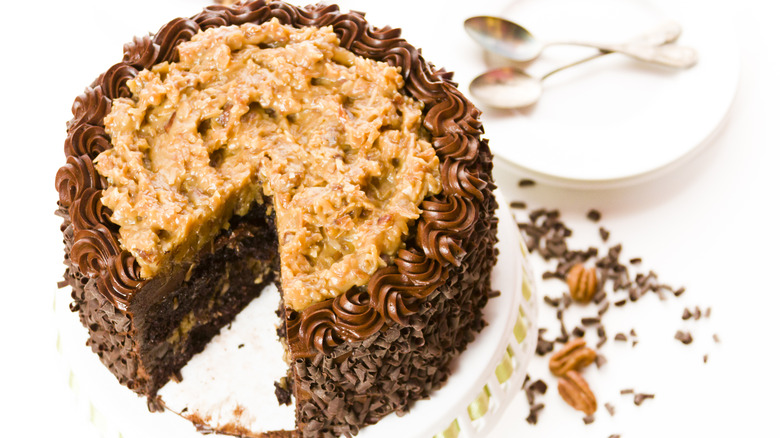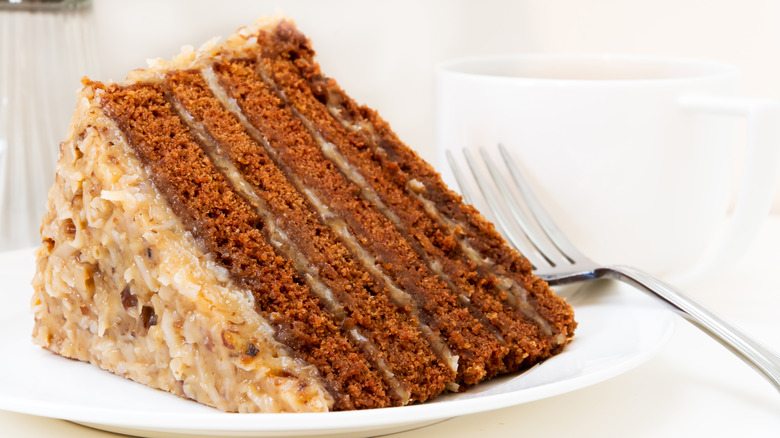German Chocolate Cake Wasn't Invented Where You Think
Correction 4/4/22: A previous version of this article stated German chocolate came traditionally comes topped with cherries. Black forest cake features chocolate and cherries, German chocolate cake traditionally does not.
There are few things in life more satisfying than sinking your teeth into a slice of decadent chocolate cake. The sweet, rich flavor and fluffy, moist texture of cake have the power to produce an instant sense of happiness, no matter the occasion. German chocolate cake, in particular, is a layered chocolate cake traditionally made with a chewy coconut-pecan custard.
According to What's Cooking America, this iconic dessert entered the culinary sphere in 1852 and quickly put its stake in the ground as one of the most recognizable baked goods. It's so well-loved that there's even an official National German Chocolate Cake Day, which is celebrated on June 11, per the National Day Calendar.
However, German chocolate cake has absolutely nothing to do with the nation that introduced the world to spätzle. But if German chocolate cake isn't German, then who on earth dreamt up this famous treat?
German chocolate cake was first baked in the US
Contrary to popular belief, the namesake of German chocolate cake is not the country in Europe, but rather a man named Samuel German, according to Culinary Lore. While working at Walter Baker & Co in Massachusetts, German developed a new type of baking chocolate in the mid-19th century, which was called "German's Sweet Chocolate".
German's chocolate gained widespread acclaim in 1957, when a cake recipe that called for the chocolate appeared in a newspaper in the "Dallas Morning Star" after it was submitted by Mrs. George Clay, a homemaker from Texas. In fact, the legendary creation was initially called German's chocolate cake, but the possessive 's was eventually dropped, per NPR. This is likely one of the main reasons confusion has continued through the decades.
Similar to how French fries were actually invented in Belgium, we still love these foods despite their deceptive labels.

